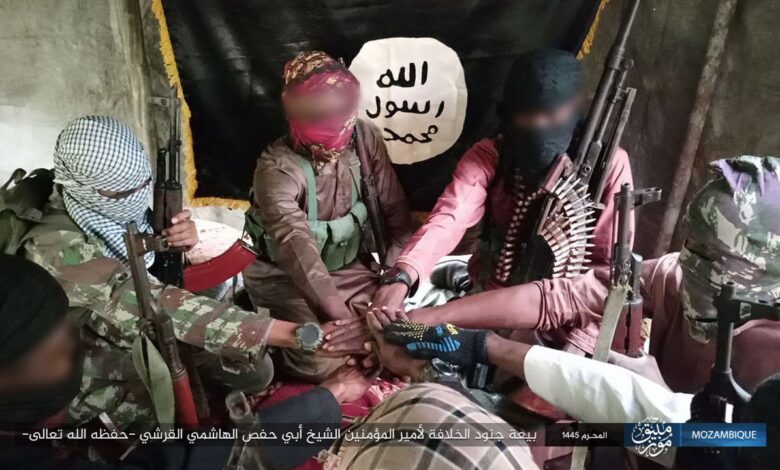
The United States Department of the Treasury has announced sanctions against three individuals accused of being integral to the Islamic State’s financial and operational networks across Eastern, Central, and Southern Africa.
This development, announced in a press statement released on July 23, is part of the broader mission of the Counter ISIS Finance Group (CIFG), a working group within the Global Coalition to Defeat ISIS that includes over 80 countries and international organisations.
The sanctioned individuals play pivotal roles in ISIS’s regional networks by serving as major financiers and connecting different affiliate groups across Africa. They inlude Abubakar Swalleh, Hamidah Nabagala, and Zayd Gangat.
According to the statement, Swalleh, operating between South Africa and Zambia, has been involved in the physical transfer of funds to ISIS affiliates in the Democratic Republic of the Congo (DRC) and the movement of operatives between Uganda and South Africa. He has a history of robberies and kidnap for ransom.
The statement added that Mohamed Ali Nkalubo, a DRC-based commander, relies on Swalleh for financial transactions and recruitment.
Also based in South Africa, Gangat is a facilitator and trainer.
Nabagala, who is stationed in the DRC, serves as a financial intermediary and has been linked to funding terrorist activities, including a deadly October 2021 bombing in Kampala, Uganda.
“In 2021, Ugandan authorities arrested an ISIS operative that had received funding from Nabagala,” noted the statement. “She also sought to smuggle her three children out of Uganda to send them to ISIS-affiliate camps in the DRC.”
Their activities indicate the transnational nature of ISIS’s operations in Africa, connecting cells and affiliates across multiple countries to facilitate attacks and spread its influence.
The Islamic State operates in Africa through provinces in Algeria, Central Africa, Libya, Mozambique, Sinai, Somalia, and West Africa. The group, which initially had its stronghold in the Middle East, has shifted its operations to the continent, where it exploits security loopholes and other existing tension to wage wars.
The sanctions against the three ISIS members freeze all their U.S.-based assets and prohibit any U.S. persons from transacting with them. Assets where they have more than 50 per cent ownership, whether directly or indirectly, will be affected, too.
It also means that the Office of Foreign Assets Control (OFAC) in the United States can impose secondary sanctions on foreign financial institutions that knowingly facilitate significant transactions for these individuals.
Similar sanctions were announced between 2022 and 2023, targeting ISIS facilitators and operatives in South Africa and Somalia. These cumulative measures aim to disrupt the terror organisation’s financial networks and diminish its capacity to destabilise the region.
The U.S. Under Secretary of the Treasury for Terrorism and Financial Intelligence, Brian E. Nelson, said, “Today’s action underscores the crucial work of the Counter ISIS Finance Group and the importance of effective information sharing among Coalition countries to target ISIS’s facilitation networks.”
“While we have made considerable progress over the nearly ten years since the establishment of this working group, we must all remain vigilant because ISIS continues to develop new financial methods. The United States, in close coordination with our key partners, remains committed to disrupting the key nodes that enable disparate ISIS groups to work together and their ability to finance the group’s terrorist activities.”
Support Our Journalism
There are millions of ordinary people affected by conflict in Africa whose stories are missing in the mainstream media. HumAngle is determined to tell those challenging and under-reported stories, hoping that the people impacted by these conflicts will find the safety and security they deserve.
To ensure that we continue to provide public service coverage, we have a small favour to ask you. We want you to be part of our journalistic endeavour by contributing a token to us.
Your donation will further promote a robust, free, and independent media.
Donate HereStay Closer To The Stories That Matter




